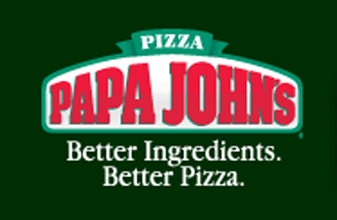Papa John’s Faces $250 Million Lawsuit for Sending Too Many Texts

 A group of Papa John’s customers were fed up with receiving annoying, incessant spam text messages, and their stance against the company is set to pay big. The customers filed a class action lawsuit against the pizza company, and U.S. District Court Judge in Seattle John Coughenour recently certified the case for damages which could reach more than $250 million.
A group of Papa John’s customers were fed up with receiving annoying, incessant spam text messages, and their stance against the company is set to pay big. The customers filed a class action lawsuit against the pizza company, and U.S. District Court Judge in Seattle John Coughenour recently certified the case for damages which could reach more than $250 million.
The plaintiffs originally filed the suit against Papa John’s International, five of its individual franchises and third-party marketing company OnTime4U in 2010, after the customers received unsolicited text messages to their mobile phones multiple times a day, sometimes in the middle of the night. According to court records, plaintiffs allege the Papa John’s franchises sent a total of 500,000 unwanted messages in early 2010, offering pizza discounts. Some customers stated they received as many as 16 texts in a row.
“After I ordered from Papa John’s, my telephone started beeping with text messages advertising pizza specials,” plaintiff Erin Chutich said in a statement. “Papa John’s never asked permission to send me text message advertisements.
When the suit was initially filed in April 2010, Papa John’s International informed its corporate stores and franchisees that sending unsolicited text messages “is most likely illegal,” and the franchises ended their relationship with OnTime4You.
According to the Telephone Consumer Protection Act of 1991, companies may not send advertisements via text message without first receiving customer consent.
Attorney Donald Heyrich—who represents the plaintiffs—said the violations of the TCPA could lead to penalties of at least $500 per unsolicited telephone advertisement or text message.
“Businesses across the country spend massive sums of money on spam filtering software on our email,” Heyrich told ABC. “We’re trying to keep spam out of our cell phones in the way that it has infected our email.”
Papa John’s senior vice president of legal affairs Caroline Oyler, however, pointed out the violations were not made by Papa John’s text messaging program, but by “third-party vendors and a small number of franchisees.”
When the company became aware of any issues with the service, “we communicated some concerns that we had,” she said. “It’s important to not these are independent businesses. We can advise but we can’t dictate how they run their business.”
Of Papa John’s 3,300 North American stores, only 20 percent are company owned.
Oyler said Pap Johns plans to appeal the national certification ruling, which is still preliminary.
“We will continue to aggressively defend the case,” she told ABC.
The class-action lawsuit could potentially result in the largest damages ever awarded under the TCPA, Heyrich told CNN. If a jury finds Papa John’s willfully broken the law, the damages of $500 per text message could increase to $1,500 per message. A trial has not yet









































